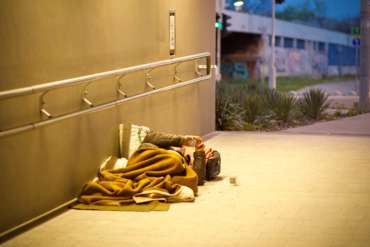The ongoing unhoused epidemic is a distressing reality that demands urgent attention. It is a deeply complex issue with profound social, economic, and humanitarian implications. I’m sure we all firmly believe that we must prioritize the basic needs of our fellow citizens, particularly shelter, clothing, and food. It is a moral imperative to examine the disparities between our ability to fund military operations and the apparent inability to adequately address the plight of the unhoused. We must delve into legislation, real-life examples, and offer meaningful commentary on the urgency of prioritizing the unhoused population and fostering sustainable solutions.
One cannot ignore the stark contrast between the vast resources allocated towards military operations and the insufficient investment in addressing being unhoused. While it is crucial to maintain national security, it is equally imperative to prioritize the most vulnerable members of our society. Being unhoused should not be viewed as an insurmountable problem, but as an opportunity for compassionate intervention and societal progress.
To effect meaningful change, legislative measures are indispensable. Governments at all levels must prioritize and allocate adequate funding to combat being unhoused effectively. This includes not only short-term emergency shelters but also long-term housing solutions, mental health services, and comprehensive support programs.
Some progressive cities and regions have already taken significant steps towards addressing being unhoused. For example, the Housing First approach, implemented in places like Utah and Finland, prioritizes providing stable housing to unhoused individuals before addressing other issues they may face, such as mental health or substance abuse. Such programs have demonstrated remarkable success in reducing chronic housing issues and improving overall well-being.
Additionally, legislation must focus on preventing housing insecurity issues before it occurs. Investing in affordable housing, expanding rental assistance programs, and ensuring a living wage are crucial components of a comprehensive strategy to combat being unhoused in America at its root causes. By addressing structural inequalities and providing a safety net for vulnerable individuals and families, we can make significant strides in reducing the unhoused population.
To illustrate the potential impact of prioritizing the unhoused, let us examine a few real-life examples. The “Housing First” initiative in Salt Lake City, Utah, successfully reduced chronic housing insecurity by 91% in less than a decade. By shifting the focus from temporary shelters to providing permanent housing with supportive services, the city transformed the lives of thousands of individuals, fostering stability and reintegration into society.
Furthermore, the “Housing First” model implemented in Finland has shown impressive results. The country has significantly reduced housing insecurity issues by providing unhoused individuals with access to permanent housing, coupled with personalized support services. By addressing the root causes of being unhoused and treating it as a societal issue rather than an individual problem, Finland has demonstrated that sustainable solutions are within reach.
Being unhoused is not just an economic or social issue—it is a matter of basic human rights. It is our responsibility as a compassionate society to ensure that all individuals have access to safe and secure shelter, adequate clothing, and nutritious food. Housing insecurity takes a devastating toll on mental and physical well-being, perpetuating cycles of poverty and societal marginalization. By prioritizing the unhoused, we not only uphold their dignity, but also foster an inclusive society that benefits everyone.
To effect real change, we must challenge societal perceptions and biases towards being unhoused. Stereotypes and misconceptions often lead to indifference and inaction. Unhoused individuals are not statistics or burdens; they are our fellow human beings who deserve our empathy, support, and meaningful solutions.
It is crucial to foster a sense of community and collaboration, involving government agencies, nonprofit organizations, businesses, and the public. By working together, we can advocate for policy changes, raise awareness, and create comprehensive support systems that empower the unhoused to regain stability and lead fulfilling lives.
The unhoused epidemic is a critical issue that demands immediate attention. By examining the disparities between military spending and investment in housing solutions, we can work towards a more equitable and compassionate society. Legislation, real-life examples of success, and a shift in societal perceptions are essential steps towards addressing the fundamental needs of the unhoused.
We must remember that the unhoused population consists of individuals who deserve our unwavering support and resources. By prioritizing affordable housing, comprehensive support services, and preventive measures, we can create sustainable solutions that foster stability, reintegration, and dignity for all.
It is time for us to act, to acknowledge the humanity and potential of every individual, and to strive towards a future where being unhoused is an aberration rather than an epidemic. Together, we can build a society that upholds the values of compassion, justice, and equality for all.

